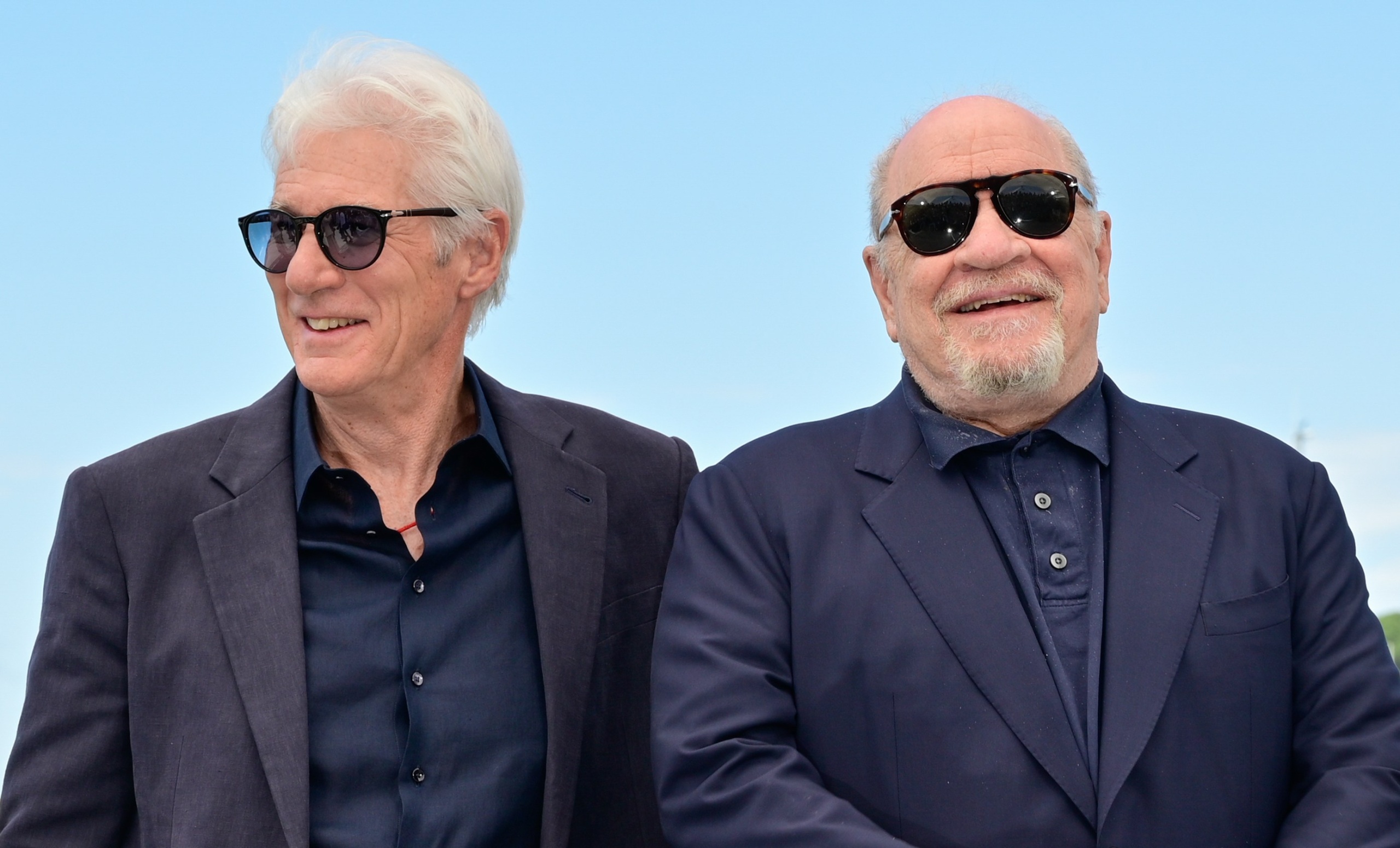Forty-four years ago, writer-director Paul Schrader scored his first box office hit and catapulted Richard Gere to stardom with “American Gigolo,” a smart and sexy thriller that combined references from European art cinema (primarily Robert Bresson) with a pulsating pop score and chic design elements to usher in the 1980s with high style. Though most of its progeny lacked its substance, the look and sound of “Gigolo” proved to be incredibly influential (producer Jerry Bruckheimer adopted Schrader’s approach as his signature style for over a decade), and it established Gere as Hollywood’s favorite male object of desire — a reputation his next film, “An Officer and a Gentleman,” solidified.
When Gere is introduced in “Oh, Canada,” his first collaboration with Schrader since their initial work together on “Gigolo,” he’s a far cry from the gorgeous Julian Kaye. Gaunt and haggard, Gere appears in a close-up that immediately establishes his character in “Oh, Canada” as a man near death. For Schrader, presenting the once youthful and electrifying “American Gigolo” as someone old and desiccated held great appeal. “I’d kept in touch with him, but I hadn’t worked with Richard since ‘Gigolo,’” Schrader told IndieWire. “I thought, Richard had never played old, and that might be interesting — people might be interested to see the dying gigolo.”
Gere said he and Schrader had talked about reuniting for years, but “Oh, Canada” was particularly interesting to him as the story of a dying man drifting in and out of lucidity. “My dad, who was almost 101 and had been living with me, had just passed away,” Gere told IndieWire. “He was very present, but there were moments where time had no meaning; the past was the present and his memory of events was not technically accurate. But it was expressionistically accurate, so I was relating to that in Paul’s script.”
To play documentary filmmaker Leonard Fife, whose memories as he lays dying comprise the story of Schrader’s script and of the Russell Banks novel “Foregone,” on which it was based, Gere drew heavily on observations of his father’s experience. “My brother and sisters haven’t seen the film yet, but there’s no question they’ll see my dad,” Gere said. “They’ll recognize the behavioral things I threw in there and see the way his mind was changing at that point in his life.” Gere is quick to add, however, that his father “was a much nicer human being” than Leonard Fife. “My dad was gregarious and loving and kind.”
While Gere’s father provided the template for Fife’s behavior, the physical appearance of the character came from another source: Russell Banks himself, who died in a manner similar to that of his character even though he wrote “Foregone” years earlier. “We were using photographs of Russell at the end that Schrader had,” Gere said. “I didn’t want to just look like a guy who was older — I wanted it to be a guy who had gone through chemo, with just tufts of hair left.”
Gere collaborated with the various departments on the movie to get the look precisely right. “We kept refining how to do it,” he said. “We went very far, then we pulled back a little bit. … I had the luxury of trying a lot of things with some really terrific hair and makeup technicians, and the DP was there the whole time experimenting. I said, ‘Play with the camera while I’m doing this. We’ll look at the footage and see how this makeup actually looks on digital.’”
According to Schrader, Gere initially wanted to take his decaying look much further than his director would allow. “He wanted to do a Christian Bale,” Schrader said, referring to Bale’s dramatic weight loss for “The Machinist.” “He wanted to look like a skeleton. But I wanted to show him in scenes where he was younger, so I couldn’t let him go that far.” That said, Gere found that as he worked on the look and reacquainted himself with Schrader, he felt increasingly liberated as an actor.
“I think we started to create a very palpable sense of freedom,” Gere said, noting that he and Schrader had both come a long way since “American Gigolo.” “I think we’ve both refined what we do and are more confident. Not that I’m that confident now — I’m still always unsure and anxious when I start a project. But with ‘Gigolo’ it was intensified because I had to make a decision to do it literally overnight, and it was a character that I did not know at all. Everything about that character was new to me, and I would have liked a lot more time to slowly, quietly allow that guy to take me over.”
Gere said that, given the way he was able to relate Leonard Fife to his father, “Oh, Canada” was a much more natural experience. “It was something that I innately felt not just on an observant level, but a kind of mysterious, experiential level,” he said. “Paul and I spoke very little during shooting, and every camera setup we did is in the movie — there’s nothing wasted.” Gere said that’s another example of Schrader’s confidence, and his ability to economize — key factors in what made their “Oh, Canada” collaboration so satisfying.”
“I like to have confidence around me,” Gere said. “I like people who are confident enough in themselves and confident enough in me to not over direct. Someone who knows my mechanisms and knows when to push a button and when to lay off.” Gere said one of his most valuable lessons came from watching Robert Altman direct some children on the set of “Dr. T and the Women.” “The kids were brilliant and mesmerizing, and I said, ‘How do you direct these kids to get these perfect performances?’ He said, ‘Richard, it’s very easy, you don’t tell them what to do.’”
Gere said the same is true of adult actors, and that the best directors guide them obliquely even if they’re looking for a specific result. “If you set up that mechanism of confidence in what actors can do, and set up the situation right, people will do something unexpected, just like in real life,” he said. “As soon as you tell someone what to do, that’s all they’ll do.”
According to Schrader, the key to Leonard Fife was simply stripping away all of Gere’s own mannerisms and affectations. “I was sitting next to Richard when Ethan [Hawke] was getting an award for ‘First Reformed,’ and Richard leaned over to me and said, ‘How did you get him to do so little?,’” Schrader said. “When Richard agreed to do ‘Oh, Canada,’ I said to him, ‘Remember when you asked me that? You’re gonna find out now.’”
Kino Lorber releases “Oh, Canada” in select theaters today.





